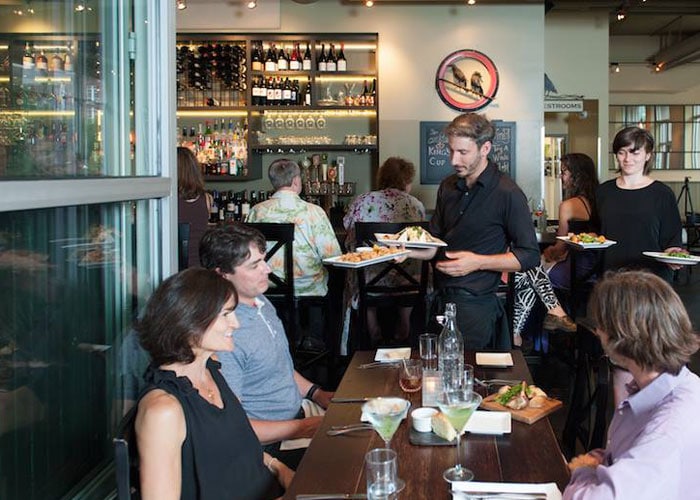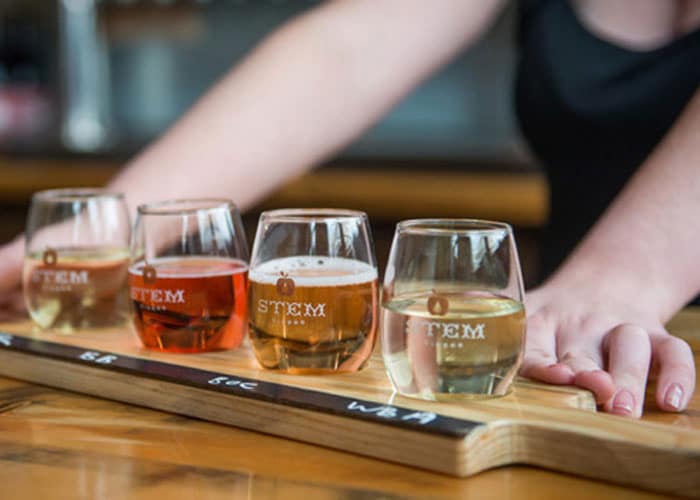The North Carolina Restaurant and Lodging Association (NCRLA), the driving force behind North Carolina’s $23.5 billion restaurant, foodservice and lodging industries, and North Carolina Retail Merchants Association (NCRMA), the voice of North Carolina’s retail industry for more than 115 years representing the state’s largest private employer, today announced joint support of House Bill 971, also known as the Modern Licensure Model for Alcohol Control, filed by Representative Chuck McGrady as a continued effort to modernize the state’s Alcoholic Beverage Control (ABC) system. The bill has three additional primary sponsors, Rep. Jon Hardister, Rep. Jason Saine, and Rep. Pricey Harrison.

“We believe the government must continue to play an important role in the oversight of our ABC system, but we also have a need for a more modern and efficient system that offers mixed beverage permittees access to specialized products, electronic ordering and payment systems, secure delivery to their establishments, and overall improvements to business processes and efficiency,” said NCRLA’s Minges. “The introduction of this bill is an important step in the transition to a better sales and distribution model that will still allow the ABC Commission to focus in on regulatory control while also benefitting North Carolina businesses and consumers.”
North Carolina is one of only eight states that still controls both the wholesale and retail sale of liquor. Furthermore, North Carolina is the only state in the country where local government has control over retail liquor sales. Whereas most states only have one ABC board, North Carolina has 170 independent authorities scattered throughout the state that determine how funds are allocated locally. This is a function that could be carried out by elected county commissioners and city council members that are already directly accountable to their constituents, opening an opportunity for an application process to thoughtfully allocate local tax dollars.
“There is not another product on the market that the state is in the business of selling by controlling, regulating, and allocating tax dollars. We want to modernize the ABC system to address the inefficiencies of our current government-operated monopoly, streamlining operations, fostering competition, and improving the marketplace for the consumer,” said NCRMA’s Ellen. “We support an approach that forges a fiscally responsible path, one that will uphold public safety and tax collection while continuing support for existing programs and driving additional local revenue opportunities across North Carolina.”
Under the current ABC system, consumer choice, options, and access are limited. Even as the state with the ninth largest population, North Carolina has the second lowest outlet density in the nation with only .58 ABC stores per 10,000 people. In addition, many North Carolinians have a desire to support local products, from produce to packaged goods to locally brewed beer, and there is an opportunity to improve access to spirits being produced by the state’s nearly 60 distilleries. Also, there are specialty spirits and craft brands that are simply not made available in North Carolina.
Local businesses also face an outdated process when it comes to ordering, receiving, and selling spirits. For example, for a restaurant or bar to place an order, they are able to browse and order online but are restricted to what is in stock in the county’s inventory — even if a neighboring county is showing availability. Once the order is placed, they must physically send an employee to an ABC warehouse to pick up the order, compared to having wine or beer delivered. Often, the employee is using a personal vehicle to load and unload the heavy boxes with high-value product; and since most ABC stores won’t accept electronic payment from wholesale customers, the restaurant must pay in cash or provide a check for the exact amount.
NCRLA and NCRMA believe North Carolina consumers and businesses would benefit from moving to a licensure system modeled in the way the state already sells beer and wine, as HB 971 proposes.
For North Carolina residents to learn more information and easily contact legislators in support of the Modern Licensure Model for Alcohol Control, visit www.freethespiritsnc.com or text FIXABC to 52886 to receive updates on the bill and ways to become involved.
About NCRLA
Established in 1947, the North Carolina Restaurant & Lodging Association (NCRLA) works to advance and protect North Carolina’s $23 billion restaurant, foodservice and lodging industry. The association provides access to the resources and support restaurant and lodging professionals need to lead thriving businesses, while serving as conscientious, contributing members of an unparalleled industry. To learn more information about NCRLA or its membership opportunities and cost-saving benefits, please visit www.ncrla.org.
About NCRMA
The North Carolina Retail Merchants Association (NCRMA) is a nonprofit trade association organized in 1902 to improve the business climate for retailers in North Carolina. Over 115 years later, NCRMA remains the voice of the retail industry for North Carolina. NCRMA represents the interests of individual merchants before the General Assembly and serves as a vital link to state government. Its credibility lies in its longevity and commitment to serving the ever-changing needs of its members. The Association’s membership includes more than 25,000 stores from across the state whose business represents 75 percent of North Carolina’s retail sales volume. NCRMA serves both large and small retailers from multi-state chains to local “mom and pops” and all types of merchants including antique, apparel, art, automotive, book, carpet, department, drug, electronics, floral, furniture, grocery, hardware, jewelry, paint and variety stores. For more information, visit www.ncrma.org.


